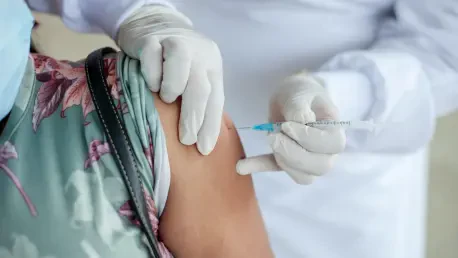Research into vaccine safety has gained critical importance in recent years, particularly following the widespread deployment of COVID-19 vaccinations. Dual challenges have emerged, involving inadequate monitoring of adverse effects and insufficient compensation for those affected. These challenges reveal the pressing need for reform within the United States’ vaccine safety systems, spotlighting the necessity of structural improvements and more robust oversight to ensure public trust in vaccines.
The Central Challenge
The central focus of the investigation is on the deficiencies in the U.S. vaccine safety systems, especially during the COVID-19 vaccine rollout. Questions arise about how effectively adverse effects are tracked and addressed, and what reforms can be made to improve these systems. The pursuit is not only about identifying weaknesses but also proposing actionable reforms that can rebuild public confidence and safety assurance in vaccination programs.
Background and Significance
The importance of this research lies in its potential to transform how vaccines are perceived and administered. As vaccines are fundamentally linked to public health, their safety monitoring is of paramount importance. The study highlights systemic failures, such as those in the experience of individuals like Brianne Dressen, whose post-vaccination symptoms went largely unacknowledged by authorities. The broader relevance here is that with global reliance on vaccines, such as during the COVID-19 pandemic, trust in their safety becomes crucial. Insufficient monitoring feeds vaccine hesitancy, risking public health endeavors.
Methodology, Findings, and Implications
Methodology
The research utilizes case studies, expert interviews, and analysis of existing vaccine safety programs to gather comprehensive data. These diverse sources help paint a holistic picture of the current challenges, with in-depth examinations of experiences facing those with adverse effects, as well as interviews with health researchers advocating for safety protocol improvements. Comparative studies with international models are also employed to provide context and alternative strategies.
Findings
Key findings illustrate significant gaps in the U.S. vaccine safety monitoring mechanisms. There is a notable lack of efficient communication between vaccine recipients experiencing adverse effects and the authorities meant to provide oversight. Many claimants are unable to access compensation through federal programs, demonstrating a systematic failure to support those affected. Moreover, critiques are leveled against high-profile figures such as Robert F. Kennedy Jr., who is seen as contributing to public distrust without providing viable safety improvements, instead perpetuating debunked claims.
Implications
The implications of these findings are far-reaching. Practically, enhanced vaccine monitoring systems can lead to better management of adverse effects, improving public trust. Theoretically, this could signal a shift in how vaccine safety is researched, calling for a move from reactionary measures toward proactive safety enhancements. Societally, having robust systems could prevent vaccine hesitancy, ensuring widespread acceptance and optimal public health outcomes.
Reflection and Future Directions
Reflection
Reflecting on the process, significant challenges arose due to the entrenched problems within existing monitoring programs. Overcoming these involved detailed data collection and stringent analysis to propose feasible reforms. However, expanding the scope to include more longitudinal studies might have provided additional insights, particularly involving long-term vaccine effects.
Future Directions
Future research should examine the integration of international best practices into the U.S. system, potentially exploring how genetic studies could help screen for at-risk individuals before vaccination. Comprehensive studies on the effectiveness of reformed compensation schemes could also offer valuable insights into improving trust and accountability in vaccine safety protocols.
Conclusion
The investigation underscored an urgent need for systemic reforms in U.S. vaccine safety processes. Major steps include advancing data gathering techniques, refining monitoring protocols, and ensuring transparent compensation avenues for those adversely affected. By recommending collaboration with international models and emphasizing research funding, the study opens a dialogue about reimagining vaccine safety. Future considerations involve more inclusive safety strategies to align public health policy with evolving vaccination challenges, thereby safeguarding collective health interests.









